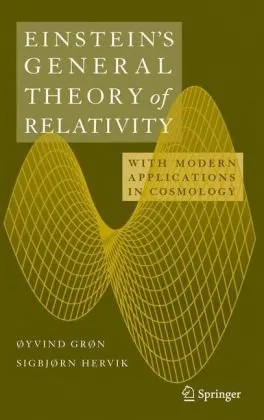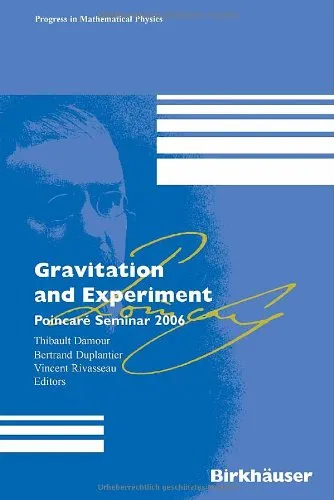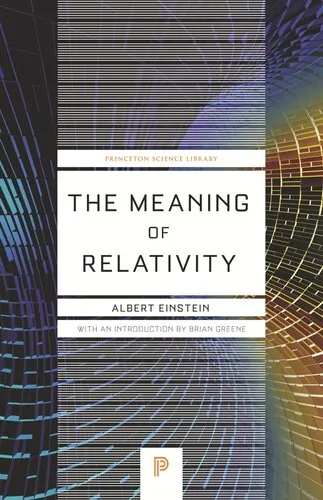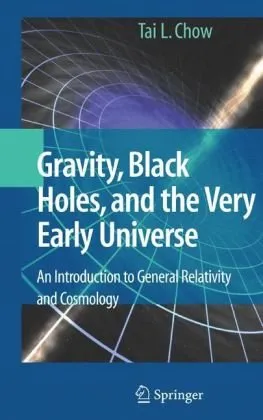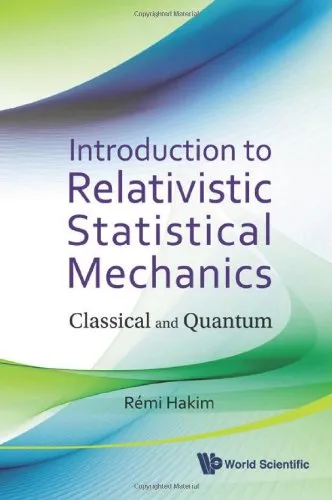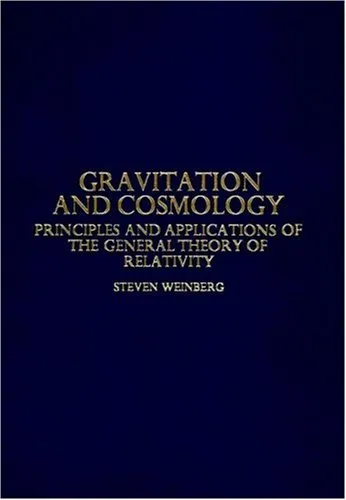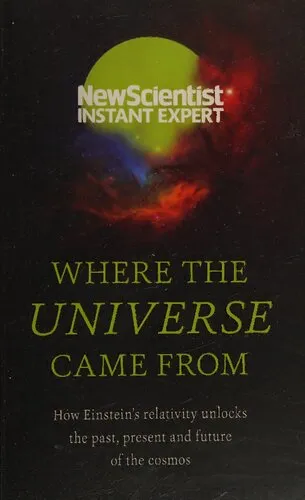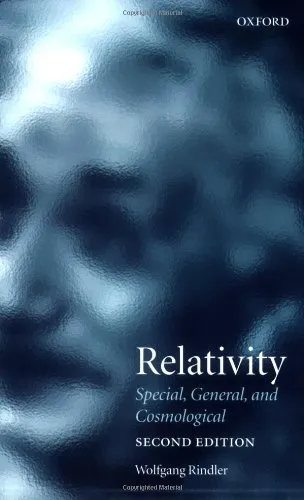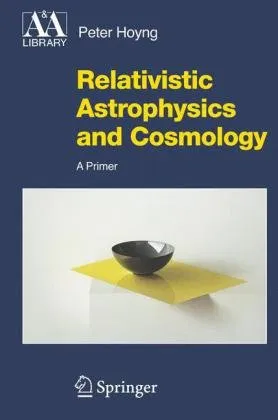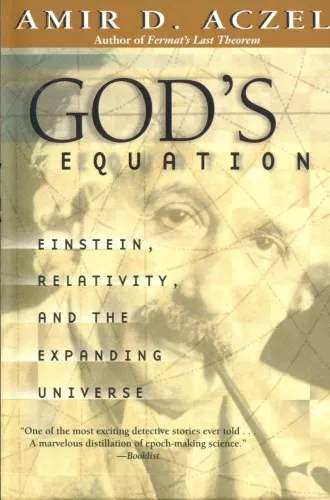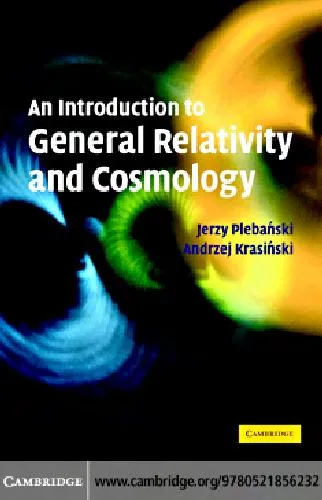Bernstein, Kinetic theory in the expanding universe
3.8
Reviews from our users

You Can Ask your questions from this book's AI after Login
Each download or ask from book AI costs 2 points. To earn more free points, please visit the Points Guide Page and complete some valuable actions.Related Refrences:
Introduction to "Bernstein, Kinetic Theory in the Expanding Universe"
"Kinetic Theory in the Expanding Universe" by Bernstein is a profound exploration of how the principles of kinetic theory—rooted in statistical mechanics—are fundamentally impacted by the expanding nature of the universe. This book bridges the gap between foundational physics, mathematics, and cosmology, offering readers both a theoretical and practical understanding of how particles, radiation, and thermodynamics behave in the dynamic cosmos.
The universe is not a static entity; it stretches, evolves, and unfolds over time, making its study a substantial challenge for physicists and cosmologists alike. Bernstein's monumental work addresses this complexity by delving into the mathematical principles and physical processes governing the behavior of matter and energy in an evolving spatial framework. This book is not just for theoretical physicists—it serves as a guiding resource for students, researchers, and anyone intrigued by the elegant intersection of kinetic theory with the grand cosmological view of our expanding universe.
Detailed Summary of the Book
Among the various literatures on cosmology and kinetic theory, Bernstein's book stands out as a lucid, thorough, and authoritative account on how the kinetic equations adapt to the conditions of an expanding universe.
In the initial chapters, Bernstein provides a strong foundation of classical kinetic theory. This includes the Boltzmann transport equation, time evolution of macroscopic parameters like density and temperature, and how interactions between particles change under collisional dynamics. As the reader progresses, the narrative shifts seamlessly into the cosmological context, where the effects of Hubble expansion and metric perturbations are incorporated into kinetic theory equations.
A significant portion of the book is devoted to relativistic formulations of kinetic theory, which are essential for understanding phenomena in a relativistic universe. Bernstein explains how the curvature of spacetime alters the kinetic properties of matter and energy, with detailed mathematical derivations that highlight this transformation. The interplay between entropy production, particle distribution functions, and diffusion in curved spacetime uncovers new insights into the very nature of cosmic evolution.
The final sections of the book examine specific astrophysical and cosmological applications. Bernstein explores topics like thermal equilibrium in the early universe, decoupling of photons and neutrinos, formation of the cosmic microwave background radiation, and the mechanisms governing large-scale structure formation. These discussions guide the reader on how kinetic theory has been instrumental in explaining observable features of the universe.
Key Takeaways
- Understand the Boltzmann transport equation and how it applies to an expanding universe.
- Explore the mathematical modification of kinetic theory under relativistic and gravitational frameworks.
- Learn how thermodynamic principles apply in curved spacetime and their effect on cosmic evolution.
- Gain insights into the formation and dynamics of large-scale structures in the universe.
- Comprehend the connection between early-universe physics and present-day cosmic observations.
Famous Quotes from the Book
"The expansion of space is not merely a backdrop but an active participant in determining the kinetic behaviors of particles and radiation."
"In the framework of general relativity, the curvature of spacetime modifies every equation, every interaction, and thus every observable in a profound way."
"Kinetic theory is not just a study of particles but a study of their story—how they shape and are shaped by the vast cosmic environment."
Why This Book Matters
"Kinetic Theory in the Expanding Universe" is more than just a textbook—it is a gateway into understanding the physics of the cosmos at its most fundamental level.
First and foremost, the book presents an intricate explanation of kinetic theory in a way that scales up to the grandeur of cosmology. For students and researchers eager to comprehend big questions, such as the initial conditions of the universe or how structures like galaxies formed, Bernstein’s work provides the mathematical and conceptual tools needed to investigate such questions. Beyond that, it demonstrates the unification of physics and cosmology by emphasizing that core principles of particle interactions are still applicable, but beautifully altered, in the grand stage of an evolving cosmic environment.
For professionals in theoretical physics and astrophysics, this book is an invaluable reference for incorporating relativistic effects into kinetic modeling. For the general reader passionate about understanding how the universe evolved from a hot, dense plasma into the vast expanse we see today, "Kinetic Theory in the Expanding Universe" is an invitation to marvel at the universe's self-consistency and elegance.
Simply put, this book matters because it provides the tools and knowledge needed to explore one of science’s greatest frontiers—how microscopic particles and macroscopic spacetime interact to create the cosmos as we know it.
Free Direct Download
You Can Download this book after Login
Accessing books through legal platforms and public libraries not only supports the rights of authors and publishers but also contributes to the sustainability of reading culture. Before downloading, please take a moment to consider these options.
Find this book on other platforms:
WorldCat helps you find books in libraries worldwide.
See ratings, reviews, and discussions on Goodreads.
Find and buy rare or used books on AbeBooks.
1208
بازدید3.8
امتیاز0
نظر98%
رضایتReviews:
3.8
Based on 0 users review
Questions & Answers
Ask questions about this book or help others by answering
No questions yet. Be the first to ask!


